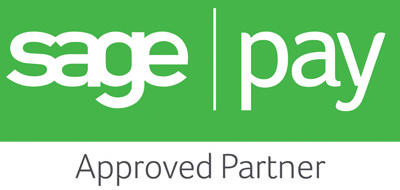Digital Marketing - How to React Around Newsworthy Events
It's Murphy's Law in action – you've got some great content lined up to publish, or you're about to press the launch button on a new advertising campaign and all of a sudden there's a serious breaking news story. By their very nature, big news stories are unpredictable so there's no way of knowing that your shiny new campaign or video is going to get scuppered by a missing person, a disease outbreak or the passing of a celebrity. All you can do is respond, and decide whether your planned content or campaign should be shelved, or sent out.
Initially, assess whether the story is relevant to your industry or brand. If you're in the business of bagged salad then an E. coli outbreak is incredibly pertinent, and warrants an immediate response. If the breaking news story is a missing person, then it's unlikely that communications or content from your brand about your latest mix of greens is going to be seen as insensitive.
That said, a view must be taken over any slogans or themes in ad campaigns that could be misconstrued. In the context of a missing persons story it would be insensitive to go ahead with any campaigns or content that reference “getting away from it all” or any mention of harm. Ask your staff and contacts for their opinion – sometimes we're too close to the content or the campaign to read it as a complete stranger would; that extra perspective can be invaluable.
The next assessment focuses on your audience. Even if the breaking story isn't relevant to your industry or product, it might be very relevant to your audience. Take the death of a celebrity – if the person is likely to be adored by your demographic you should tread carefully when it comes to launching a new campaign, perhaps pausing for a week while people grieve. When David Bowie died it affected people of all generations, however the death of a celebrity who is a newer phenomenon may not affect older generations who aren't familiar with the personality. If in doubt, it is best to stall any new campaigns for a week or two to allow (potential) customers time to grieve.
There are some breaking news stories you can prepare for, however. Weather events like a hosepipe ban being announced come with a warning in the form of no rainfall for weeks, while the passing of a respected figure in your industry can be expected depending on the age, and health status of that person. It makes sense to have some content ready to go for these events, that you can put the finishing touches to and get out there ahead of your competitors. Monitor industry or geographically relevant themes for the early warning signs.
If you have to defer a campaign or a piece of content due to a globally significant event, don't simply do and say nothing. Issue a statement on your social channels, or consider putting something on your home page. The outbreak of war, or the death of a head of state are two such examples of events that justify the pausing of normal marketing activities.
If the event is relevant to your business, be present in online spaces and offer appropriate support to your customers or to the people affected by the news. When the dust has settled, it can be appropriate to publish a good news story about any positive effect your business had on those affected by the events, perhaps donations and support to people made homeless through fire or flooding. However be very wary of trying to capitalise on tragic events to promote your business, as the public perception of acts of charity from businesses can change very quickly in the immediate aftermath of a newsworthy incident.
In short, yes, you should react to events in a proportionate way, if the event is relevant to both your business and your (potential) customers or local community. Parua can help you craft content and campaigns to communicate effectively during developing events and big news stories.
